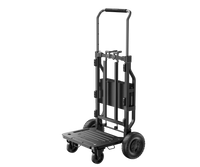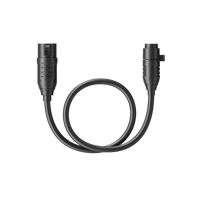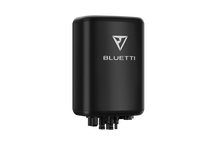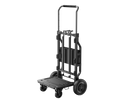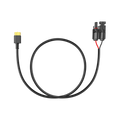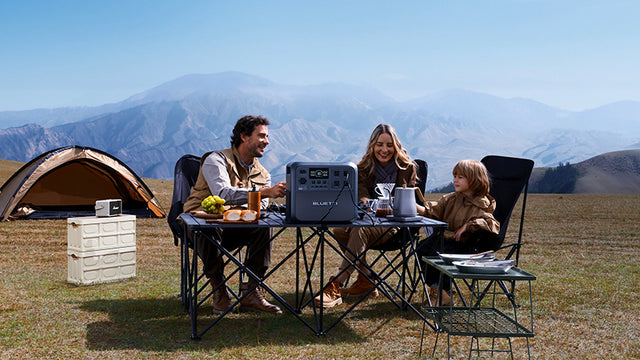Your cart is empty
Shop our productsElectric water heaters are a vital part of our daily lives. We rely on them for hot showers, clean dishes, and warm laundry. However, have you ever wondered how much energy these appliances actually consume? One important factor to consider when it comes to electric water heaters is the amount of amps they use. In this article, we will delve into the question of "How many amps does an electric water heater use?" and discuss why it's essential to understand this information. Whether you are a homeowner looking to lower your energy bills or a renter curious about your electricity usage, this article will provide you with valuable insights into the amps used by electric water heaters. So, let's dive in and learn more about this important aspect of our daily lives.
How Amps are Related to Electric Water Heaters

Let’s explore water heater amps and see how they are related to electricity bills. You will learn to calculate water heater electricity costs and factors related to amp usage.
An amp, short for ampere, is the unit used to measure electric current. It is a measure of the flow of electrical charge through a circuit. Electric water heaters require a certain amount of amps to function properly. The amperage of an electric water heater is dependent on its power rating, which is measured in watts.
It is crucial to know the standard amperage for your electric water heater, as exceeding the recommended amperage can lead to electrical issues and even cause the water heater to malfunction. The standard amperage for an electric water heater ranges from 10 to 120 amps, depending on the type and size. Tank-style water heaters typically use 20–30 amps at 240V, cycling on and off to maintain a full tank of hot water. Tankless (on-demand) water heaters require 40–120 amps at 240V, depending on size and flow rate, due to their need to heat water instantly. Heat pump water heaters are more efficient, typically using 15–30 amps at 240V, though they may include a 4,500 W backup element drawing similar amps to tank models.
Most electric water heaters in the U.S. operate at 240 volts, but smaller models (e.g., 30-gallon compact units) may use 120 volts, drawing ~12 amps (e.g., 1,500 W). Voltage must be known to calculate amperage accurately. Factors like temperature settings don’t change instantaneous amperage (amps = watts/voltage), but higher settings increase run time, raising total energy use. Better insulation reduces heating cycles, lowering overall energy consumption without affecting amp draw.
If you are unsure of the amperage of your electric water heater, you can usually find this information on the manufacturer's label or in the user manual.
Factors Affecting Amp Usage of Electric Water Heaters
When it comes to electric water heaters, one of the most common questions that homeowners have is, “How many amps does it use?” The answer to this question is not a straightforward one because there are several factors that can influence the amperage usage of an electric water heater. In this article, we will explore the various factors that can affect the amp usage of an electric water heater.
A. Tank Size
Larger tanks don’t necessarily require higher amperage, as most use standard 4,500–5,500 W elements (18.75–22.92 amps at 240V). However, larger tanks (e.g., 80-gallon) operate longer to heat more water, increasing total energy use (kWh) but not instantaneous amps.
B. Heating Element Type
Standard heating elements (4,500–5,500 W) draw 18.75–22.92 amps at 240V. High-wattage elements heat faster but draw more amps, while low-wattage elements (e.g., 1,500 W) draw fewer amps (~12.5 amps at 120V) but heat slower. Heat pump water heaters are efficient due to their compressor (300–1,000 W, ~1.25–4.17 amps at 240V), but many include a 4,500 W backup element (~18.75 amps).
C. Temperature Setting
Higher temperature settings (e.g., 140°F vs. 120°F) don’t change instantaneous amperage but increase run time, raising total energy use. Setting the thermostat to 120°F reduces cycling and saves energy.
D. Usage Habits
High hot water demand (e.g., in large households) increases heater run time, raising energy consumption but not instantaneous amperage. Using hot water during off-peak hours can lower costs in areas with time-of-use rates.
Calculating Amp Usage of Electric Water Heaters
Electric water heaters are essential appliances in every household, providing hot water for daily needs such as showering, washing dishes, and doing laundry. However, many homeowners may not realize the amount of electricity these heaters consume, which can add up to significant energy costs over time. To better understand the amp usage of an electric water heater, it's important to know the formula for calculating it and see an example of its application.
A. Formula for Calculating Amp Usage
The formula for calculating the amp usage of an electric water heater is fairly simple. Amp usage is calculated as: Amps = Wattage / Voltage. Most U.S. water heaters use 240 volts, though compact models may use 120 volts.
For example, a 4,500-watt heater at 240 volts uses 4,500 / 240 = 18.75 amps.
B. Example Calculation
Let's say you want to calculate the amp usage of your electric water heater to determine its energy consumption and cost. For a 4,500-watt tank-style water heater at 240 volts, operating ~2.5 hours/day (average for residential use):
- Amp Usage: 4,500 / 240 = 18.75 amps.
- Energy Consumption: 4,500 W × 2.5 hours = 11,250 watt-hours = 11.25 kWh/day.
- Cost: At $0.1745/kWh, 11.25 kWh × $0.1745 = $1.96/day, or $58.80/month (30 days).

The amp usage of an electric water heater can be calculated using a simple formula that takes into account the heater's wattage and the voltage of your home's electrical system. Knowing the amp usage can help you estimate the energy consumption and cost of operating your water heater, allowing you to make informed decisions about energy usage and potentially save on electricity bills. It's essential to consider the amp usage and energy consumption of appliances like electric water heaters to better manage your household's energy usage and costs.
Standard Amp Usage of Electric Water Heaters
Electric water heaters are a common household appliance, used to provide hot water for various purposes such as bathing, washing dishes, and laundry. They come in different sizes and capacities, but one of the concerns of homeowners is the amount of electricity they consume. In this article, we will explore the standard amp usage of electric water heaters based on their tank capacity.
A. 40 Gallon Tank
A 40-gallon tank-style water heater suits small to medium households (1–3 members) and uses 18–20 amps (e.g., 4,500 W at 240 V = 18.75 amps). Frequent use or higher temperatures may increase run time but not amperage. However, this may vary depending on the brand and model of the water heater.
It is important to note that the amp usage may also increase if the water heater is used frequently or if there is a higher demand for hot water. For example, if multiple household members are taking showers consecutively, the amp usage may increase due to the continuous heating of water.
B. 50 Gallon Tank
A 50-gallon tank, ideal for medium to large households (3–5 members), uses 20–25 amps (e.g., 4,500–5,500 W at 240 V = 18.75–22.92 amps). Heavy usage increases run time, not instantaneous amps.
Similar to the 40-gallon tank, the amp usage may also increase based on usage and demand. It is recommended to monitor the amp usage and adjust water usage accordingly to avoid overloading the electric circuit.
C. 80 Gallon Tank
For households with more than 5 members or those with high hot water demand, an 80-gallon electric water heater is the most suitable option. This size can provide a significant amount of hot water without having to wait for the water heater to heat up again. The average amp usage for an 80-gallon electric water heater is 20-25 amps (e.g., 5,500 W at 240 V = 22.92 amps). Ensure the circuit can handle this load.
|
Tank Capacity |
Suitable Household Size |
Average Amp Usage |
|
40 Gallon |
1–3 members |
18–20 amps |
|
50 Gallon |
3–5 members |
20–25 amps |
|
80 Gallon |
5+ members |
20–25 amps |
Energy Efficiency and Amp Usage
When it comes to energy efficiency, electric water heaters are a popular choice for many households. These water heaters use electricity to heat up the water, making them a cleaner and more convenient option compared to gas-powered water heaters. But how many amps does an electric water heater actually use? Let's delve into the topic and explore the relationship between energy efficiency and amp usage.
Energy Star Rating
The Energy Star rating is a certification given to appliances that meet certain energy efficiency standards set by the U.S. Environmental Protection Agency and the Department of Energy. Electric water heaters with an Energy Star rating are more energy-efficient compared to models without this certification. This means that they use less electricity to heat up the water, resulting in lower energy bills. So, if you're looking to reduce your energy consumption and save money in the long run, investing in an Energy Star-rated electric water heater is a smart choice.
Energy Star certification indicates 10–20% less energy use than standard models, lowering overall kWh but not necessarily instantaneous amps. Heat pump models use 300–1,000 W in compressor mode (1.25–4.17 amps at 240 V) but may have 4,500 W backup elements (18.75 amps).
Impact on Amp Usage
Efficient models reduce run time, not instantaneous amperage. For example, a 50-gallon Energy Star heat pump heater may use ~1,000 W (4.17 amps) in compressor mode but 18.75 amps with its backup element. Better insulation reduces cycling, lowering total energy use.
Furthermore, regularly maintaining your electric water heater can also impact its energy efficiency and amp usage. A well-maintained heater will operate more efficiently, resulting in lower energy consumption and amp usage. So, make sure to flush and clean your water heater regularly and check for any leaks or damage that may affect its performance.
The amp usage of an electric water heater is directly affected by its energy efficiency rating. Investing in an Energy Star-rated electric water heater can significantly reduce your energy consumption and save you money on utility bills. Additionally, regular maintenance is crucial in keeping your electric water heater running efficiently and maintaining its energy efficiency. So, if you're in the market for a new water heater or looking to upgrade your existing one, make sure to consider its energy efficiency rating and potential impact on amp usage.
Save on Electricity Costs
Electric water heaters consume a lot of energy. They are one of the main contributors to hefty electric bills. A typical 50-gallon tank-style heater (4,500 W, 2.5 hours/day) uses 4,106.25 kWh/year (4.5 kW × 2.5 hours × 365 days), costing $716.54/year at $0.1745/kWh. Heat pump models use ~1,095 kWh/year (1 kW × 3 hours × 365 days), costing $191.07/year, assuming minimal backup element use.
You can reduce the costs to a minimum with BLUETTI power stations. Let’s explore:
BLUETTI Apex 300 Versatile Power Station

The Apex 300 versatile power station offers complete home backup during power outages. It has a 2,764.8Wh capacity with 3,840W power output. You can easily run your heavy-duty appliances like electric water heaters, stoves, etc, in 7,680W power lifting mode. You can enhance the backup to 58kWh and 11.52kW (via 2–3 units & 18 battery packs). The power station offers 120/240 volt output to cater to different voltage requirements.
You can shift to clean energy with Apex 300. The power station can run your entire house on solar energy. It supports 2.4kW-30kW solar input with fast recharging. In case you face sudden outages from the grid supply, the power station has a Zero-Delay UPS for seamless 0ms switchover. The efficiency, durability, and reliability of the system are next level. It employs an automotive-grade LiFePO₄ battery (6,000+ cycles for 17-year daily use). You can easily control the system via the smart BLUETTI app.
BLUETTI AC200L Portable Power Station

The BLUETTI AC200L Portable Power Station is a smart solution to power key appliances during power outages. It can also help reduce electricity bills if you use them with solar energy to run power-hungry appliances like electric water heaters, stoves, air conditioners, etc. The portable power station offers 2,400W (Peak 4,800W and Surge 3600W ). It can seamlessly run small electric water heaters.
The power station has 2,048Wh (Expandable up to 7,577.6Wh with 2*B300K). It comes with advanced LiFePO₄ (Lithium Iron Phosphate) battery packs. The battery technology is known for exceptional durability and longevity. It can offer 3,000+ cycles to 80% capacity. You can use a multi-recharge facility to run a variety of appliances. Here’s the breakdown:
- AC Charging (2,400W): ~1.5 hours
- Solar Charging (1,200W): ~2.5 hours (ideal conditions)
- Car Charging (12V/24V): ~10-20 hours
- AC + Solar (2,400W): ~1.5 hours (ideal conditions)
The power station has a plug and power design. It is highly portable with multiple AC/DC ports to easily connect different appliances. If you’re running the power station on a grid supply, it can shift to battery backup in 20 milliseconds with the UPS feature.
Water Heater Types: Tank vs Tankless
When it comes to choosing a water heater, one of the biggest decisions to make is whether to go with a traditional tank water heater or a newer tankless model. Both types have their advantages and disadvantages, and understanding their differences is crucial in making the right choice for your household.
Tank-style water heaters (20–30 amps at 240V) cycle to maintain hot water, with high demand during heating but not continuous operation. Tankless water heaters (40–120 amps at 240V) draw high amps briefly to heat water instantly. Heat pump water heaters (15–30 amps at 240V) are the most efficient, using a compressor (300–1,000 W) but may include a 4,500 W backup element (18.75 amps).
Additionally, the type of fuel used by the water heater also plays a significant role.
Fuel Type: Electric vs Gas Water Heaters
Electric water heaters are powered by electricity, and they are relatively easy to install and maintain. They are also often more energy-efficient than gas water heaters, with newer models boasting higher efficiency ratings. However, they can be more expensive upfront, and their operating cost can be higher in areas with high electricity rates.
On the other hand, gas water heaters use natural gas or propane to heat the water. They tend to have a lower upfront cost, but their installation can be more complicated due to the need for proper ventilation. Gas water heaters also have a higher heating capacity, making them suitable for households with high hot water demands.
FAQs
1) What is the average power consumption in amps for an electric water heater?
A 50-gallon tank-style heater uses ~18.75 amps (4,500 W at 240 V). Compact 30-gallon models at 120 V use ~12 amps, while tankless models may use 40–120 amps, and heat pumps 15–30 amps.
2) Can the amp usage vary depending on the size or type of electric water heater?
Yes. Tankless heaters require higher peak amps (40–120 amps), while heat pumps use fewer (15–30 amps). Tank sizes don’t significantly change amperage but affect run time.
3) Are there any energy-efficient models of electric water heaters that use fewer amps?
Yes. Heat pump water heaters use 15–30 amps (often ~4.17 amps in compressor mode), with better insulation and compressor technology reducing run time and total energy use.
Conclusion
To ensure the safe and efficient operation of your electric water heater, it is recommended to have a dedicated circuit with the appropriate amperage for your specific heater. Consult with a licensed electrician if you are unsure about the electrical requirements or need to upgrade your circuit.
It is also important to monitor your water heater's energy usage and make any necessary adjustments to save on electricity costs. This can include setting your water heater's temperature to an energy-saving level and performing regular maintenance to keep it running efficiently.
In summary, knowing the amps used by your electric water heater can help you ensure a reliable and cost-effective supply of hot water for your household. Be sure to consult your heater's manual and seek professional help when needed to ensure the safe and proper use of your electric water heater.
Shop products from this article
Be the First to Know
You May Also Like
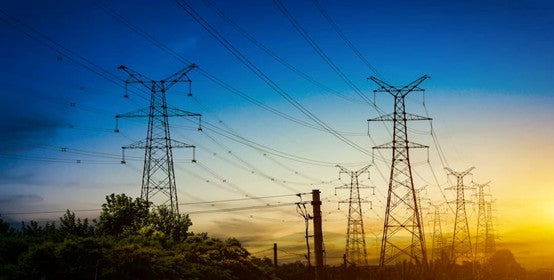
Cherokee Electric Cooperative: Bill Pay, Outage Map, and Customer Service Guide
Cherokee Electric Coop is a local electric cooperative that provides reliable energy services to its members. This article provides important information about this cooperative, such as how to pay your...
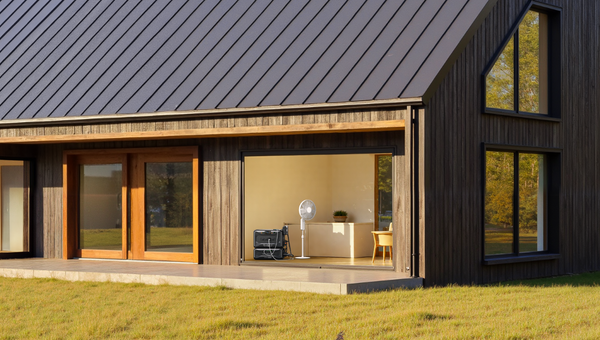
Central Florida Electric Cooperative: Pay Bill | Outage Map | Customer Service | Phone Number
This article will discuss the services offered by Central Florida Electric Cooperative and provide customers with important information about how to pay their bills, check outages maps, get customer service,...
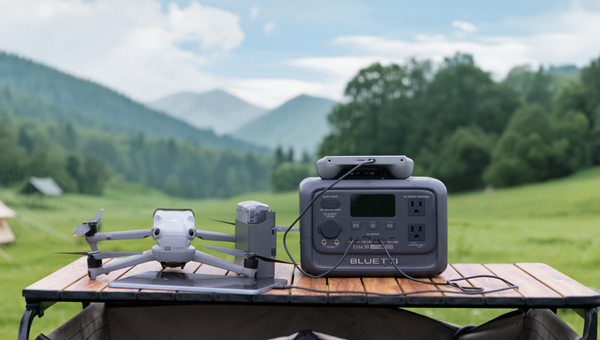
BVU Authority: Pay Bill | Check Outage Map | Customer Service | Phone Number
This article is all about providing readers with vital information about Bvu Authority, one of the leading utilities providers in the United States. We will cover topics such as how...



































































